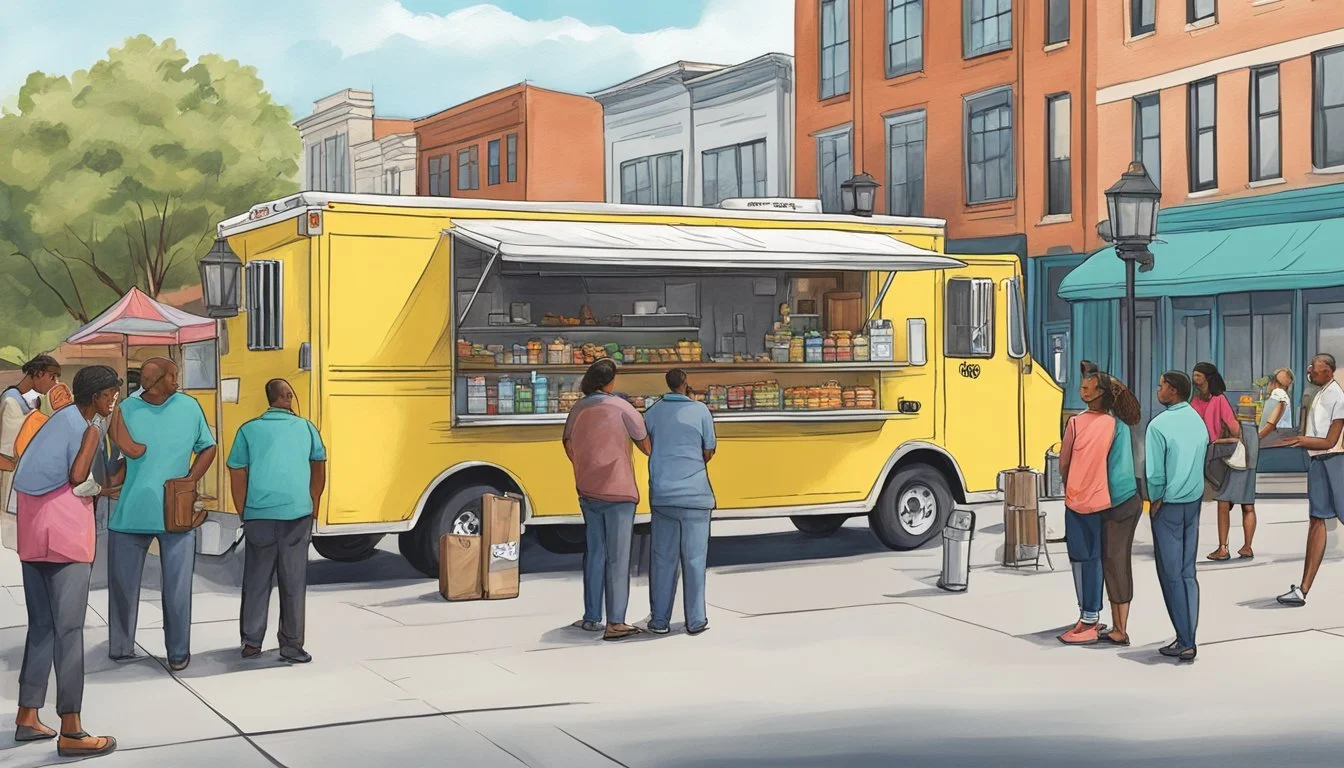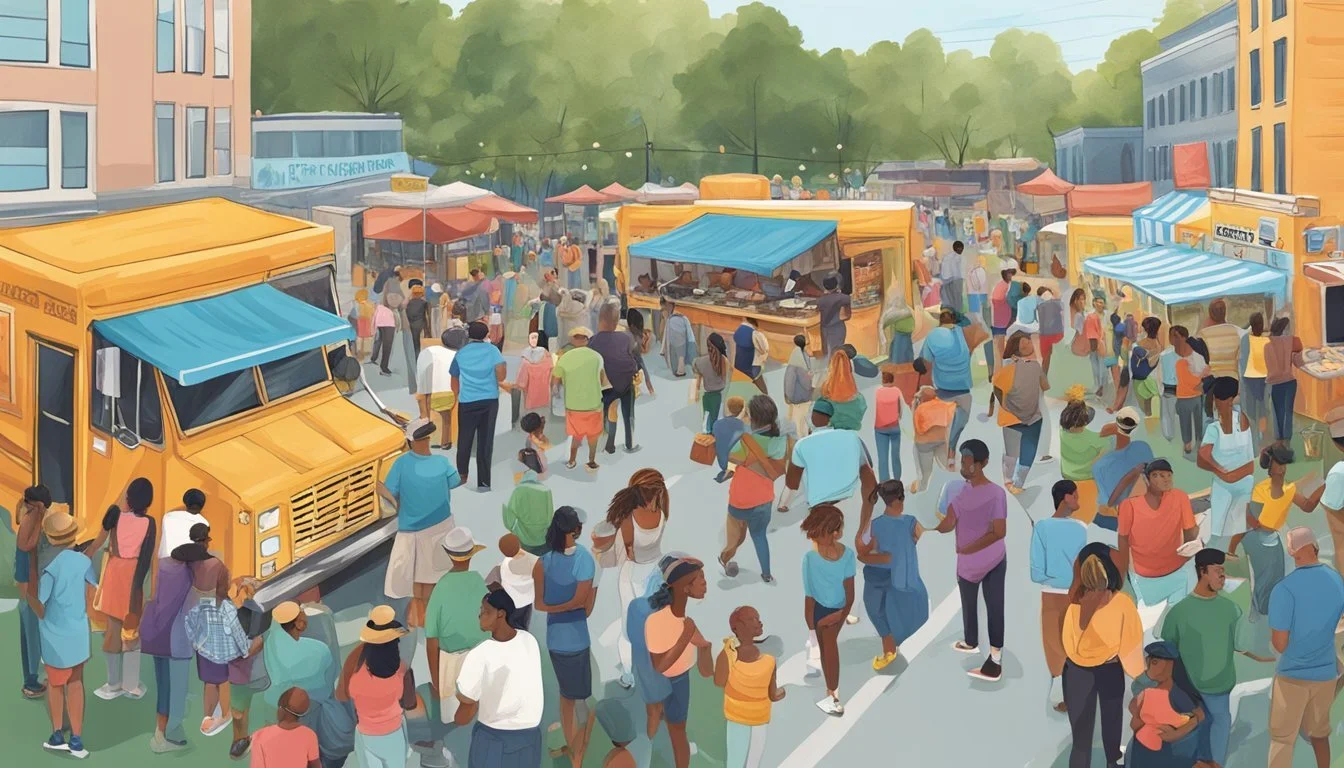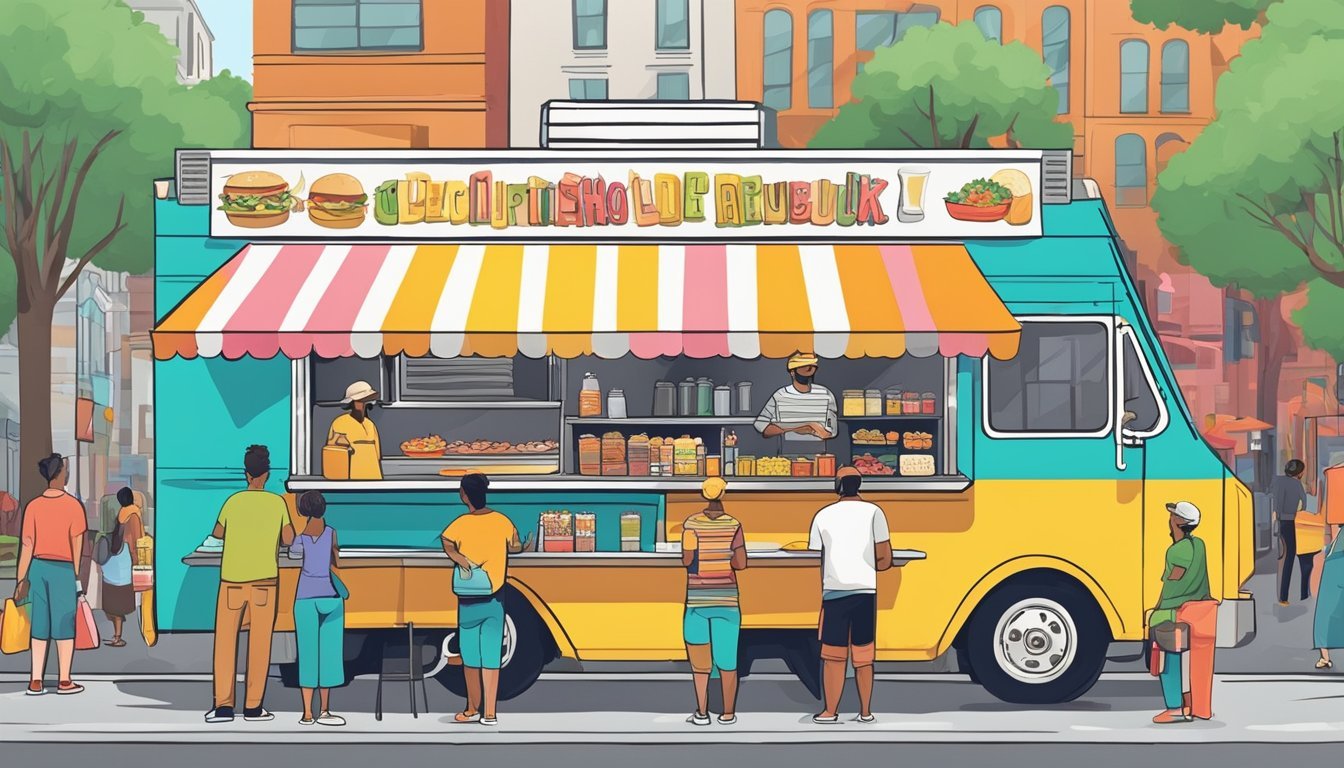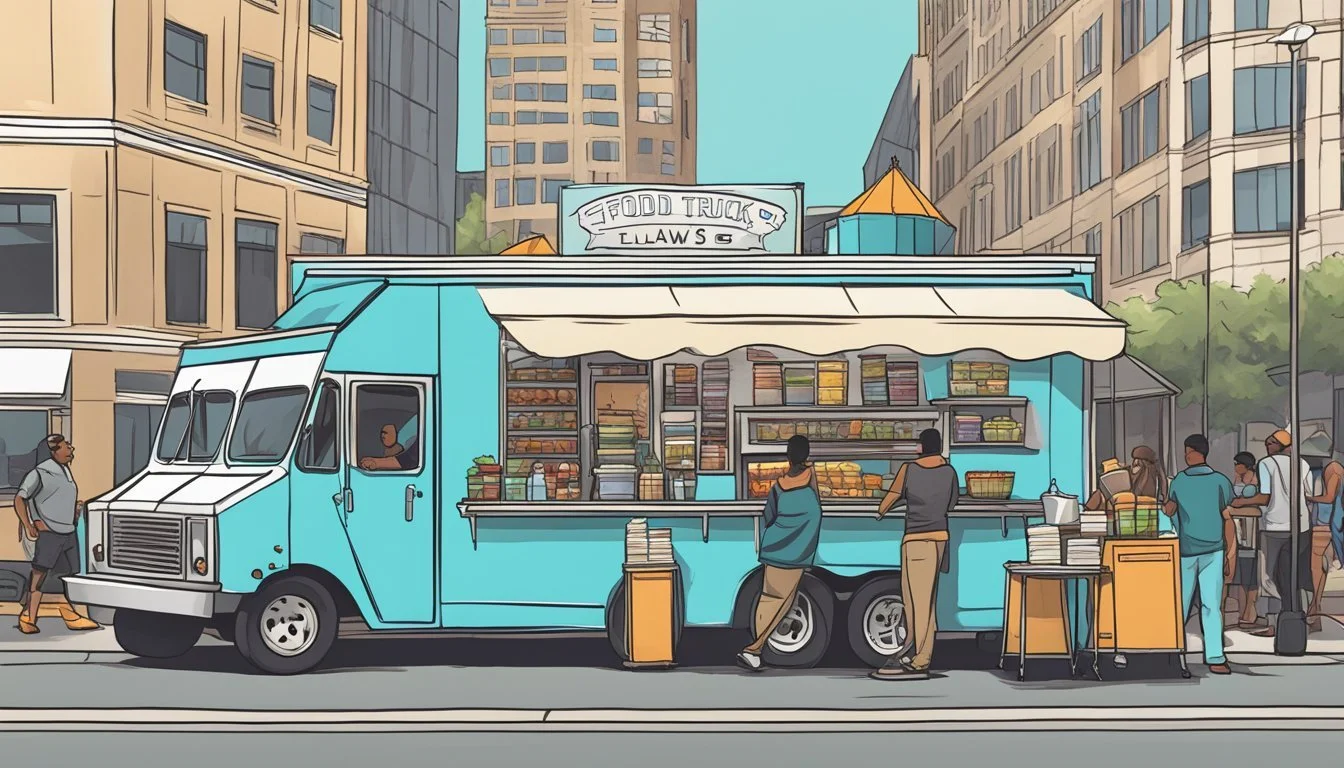Food Truck Laws Raleigh, North Carolina
A Comprehensive Guide
Food truck culture has become an integral part of Raleigh's diverse culinary scene, offering an array of flavors and cuisines from the convenience of mobile kitchens. The city's regulations provide a framework that balances the interests of food truck operators, brick-and-mortar restaurants, and the community at large. In Raleigh, food trucks are permitted to operate on private property and the public right-of-way as long as they adhere to specific zoning and parking requirements.
Compliance with these regulations is essential for food truck operators in Raleigh. They must navigate through a series of permits and licenses to ensure their business is legally sanctioned. From securing a business license to obtaining a mobile food facility permit, each step is governed by local health department rules designed to maintain public safety and fair business practices. Additionally, food trucks in Raleigh must not use parking spaces designated for the primary use of an establishment when it is open to the public, although they can share such spaces during separate operating hours.
Understanding and following Raleigh's food truck laws is not only about legality; it's about respecting the city's community spaces and contributing to a vibrant street food culture. Food truck entrepreneurs are encouraged to become familiar with the local codes, as compliance contributes to the sustainable growth of their businesses and helps foster a positive relationship with customers and other stakeholders within the city.
Understanding Food Truck Regulations
In Raleigh, North Carolina, food truck operators must navigate a comprehensive set of regulations covering everything from zoning to health and safety. Familiarity with these laws is crucial for running a compliant and successful mobile food business.
General Overview of Food Truck Laws
Food trucks, as regulated mobile food units, are required to adhere to specific requirements established by the North Carolina Department of Health and Human Services. Both state-wide regulations and local City of Raleigh ordinances apply. A permit is essential to operate legally, and it is important that operators understand the different types of permits and licenses necessary for their businesses.
Zoning and Location Restrictions
The City of Raleigh permits food trucks on both private property and public streets, but zoning restrictions apply. A zoning permit is needed, and the number of food trucks allowed on a lot has been increased within the Downtown Overlay District. Operators must ensure they are in compliance with zoning and location regulations to avoid penalties.
Health and Safety Compliance
Health and safety are paramount, thus food trucks are subject to inspection by the local health department to ensure they meet food safety and sanitation standards. Critical aspects like refrigeration and temperature control are checked to confirm safe food handling. Moreover, having a certified food protection manager on staff is a requirement for many mobile food units.
Business and Operational Permits
To legally operate, food trucks need a mobile food unit permit from the local health department as well as a business license registered with the North Carolina Secretary of State. The process of licensing can involve several steps, including plan submission and inspection. It is recommended that potential operators obtain approval before building or buying a unit to avoid unnecessary cost from non-compliance rework.
Starting a Food Truck Business
In Raleigh, North Carolina, the journey to starting a food truck business involves meticulous planning, adherence to specific applications and fees, investment in necessary equipment, and building a competent team.
Business Planning and Strategy
To successfully launch a food truck in Raleigh, it is crucial to develop a robust business plan that outlines your food truck's concept, market analysis, and financial projections. This strategic blueprint will not only guide the operation but also assist in securing funding. Entrepreneurs should consider the needs of their target market and decide whether to create a niche offering or cater to popular tastes.
Application Process and Fees
The application process for starting a food truck business in North Carolina involves several steps, including obtaining the appropriate licenses and permits. Entrepreneurs should expect to navigate through an application process, which includes the payment of various fees for permits such as food service establishment permits from the local health department and additional city-specific approvals. Timely application is key to ensure you meet any operational deadlines.
Acquiring Necessary Equipment
Equipping a food truck with the necessary equipment is essential for efficient service and compliance with food safety regulations. A typical North Carolina food truck requires a commercial-grade kitchen with items like refrigeration, a cooking range, and sanitation stations. Each piece of equipment must meet the health department's standards to ensure the food truck is fully licensed for operation.
Hiring and Training Employees
Skilled and knowledgeable employees are the backbone of any successful food truck business. It is imperative to hire individuals who can handle fast-paced work environments and are eligible for or already possess a food handler’s license. Comprehensive training ensures that employees understand food safety, customer service, and the operational flow of the food truck, maintaining the high standards necessary for the longevity of the business.
Local Government Interaction
In Raleigh, North Carolina, food truck operators must navigate a framework of policies and regulations. The local government, including the city council and regulatory bodies, plays a pivotal role in determining the viability and operation of food trucks within the city. Compliance with established ordinances is crucial for successful and lawful food truck operation.
Working with the City Council
The Raleigh City Council has taken active steps to regulate food trucks by approving policies that affect where and how food trucks can operate. Changes to these regulations, such as increasing the number of trucks allowed on a lot, demonstrate the Council's role in shaping the local food truck landscape. Operators must seek council approvals for their business, which often involves adhering to zoning requirements and the Downtown Overlay District guidelines.
Adhering to Local Ordinances
Food truck operators are required to conform to local ordinances that cover a wide range of operational aspects — from food safety to zoning laws. Wake County Government provides guidance for mobile food vendors, emphasizing the importance of submitting plans for regulatory approval. This may include obtaining various permits, passing health inspections, and ensuring proper waste disposal, as regulated by environmental health departments. Failure to comply with these local policies and regulations can lead to penalties or denial of the right to operate.
Operational Details and Best Practices
When operating a food truck in Raleigh, North Carolina, adhering to specific operational details and best practices is crucial for ensuring compliance, public health, and customer satisfaction. Food safety, waste management, and safeguarding against liabilities are the cornerstone requirements for a successful mobile eatery.
Food Handling and Allergen Awareness
Food trucks must maintain stringent food safety protocols. This ensures the safe handling of every item served and protects public health. Regular storage checks are required to keep food at correct temperatures, preventing spoilage. Allergen information must be clearly provided to customers, and food handlers should receive training to avoid cross-contamination of allergenic ingredients. For specific guidelines, operators can refer to the Quick Reference Guide for Food Trucks.
Waste Management and Environmental Considerations
Effective waste management practices are significant for minimizing the environmental impact of food truck operations in Raleigh. Food trucks should follow local guidelines for waste segregation, ensuring recyclables and general waste are disposed of responsibly. Additionally, trucks should use eco-friendly packaging options where possible, and proper storage methods must be implemented for both fresh and waste materials to ensure they do not contaminate the environment.
Insurance and Liability
To protect against potential liabilities, food truck operators must secure appropriate insurance. This includes coverage for property damage, injuries, and food-borne illnesses directly linked to their operations. Compliance with Raleigh's zoning and business regulations helps to prevent any legal and financial repercussions. Regular vehicle and equipment inspections contribute to keeping the operation within the safety guidelines laid out by city and state authorities.
Promotional Activities and Cultural Impact
Engaging promotional strategies are essential for food truck operators in Raleigh, North Carolina, where the business also significantly contributes to the local food culture. Marketing efforts range from digital campaigns to community participation, reflecting a diverse culinary scene that food trucks have helped to cultivate.
Marketing Your Food Truck
To stand out in Raleigh's competitive food truck scene, operators are leveraging a variety of marketing tactics. They utilize social media platforms such as Twitter and Instagram to announce locations, daily menus, and special events. Some opt for collaborative approaches by participating in food truck rodeos, effectively acting as mobile billboards that draw attention and customers.
Contributions to Local Food Culture
Food trucks in Raleigh have transformed local eating habits and contributed to North Carolina’s culinary reputation. The city's vibrant food truck culture offers an array of global cuisines, fostering a cosmopolitan dining environment. According to the Carolina Journal, they are more than a trend; they represent a movement, enriching Raleigh's culture and community through innovative dishes and culinary experiences.
Legal Considerations and Penalties
In Raleigh, North Carolina, food truck operators must navigate a series of legal considerations to remain compliant with state and local regulations. Non-compliance can result in penalties that range from fines to the suspension of permits.
Understanding State Sales Tax
Food trucks operating in Raleigh are required to collect and remit North Carolina Sales Tax. The North Carolina Revenue Department provides guidelines on the rates and processes for collection. Failure to adhere to these tax obligations can lead to financial penalties.
Compliance with Alcohol Regulations
If a food truck operator intends to sell alcohol, they must comply with strict regulations. Obtaining a Liquor License is a significant legal requirement, and non-compliance can lead to severe consequences, including hefty fines and potential closure. For specific licensure details, operators should contact Raleigh’s [Department of City Planning](https://cityofraleigh0drupal.blob.core.usgovcloudapi.net/drupal-prod/COR22/FoodTruckManual.pdf).
Penalties for Non-Compliance
Operating a food truck without the proper permits and licenses is considered a misdemeanor in North Carolina. Penalties can include up to 30 days in jail and/or a fine of up to $500. These penalties serve as a deterrent to ensure all food truck operators adhere to the health and safety standards set by the local health department.
Additional Resources
Navigating the complexities of food truck laws in Raleigh can be streamlined by utilizing a set of strategic resources. They provide a foundation for understanding regulatory requirements, offer opportunities for connecting with fellow mobile vendors, and expose entrepreneurs to communities that foster professional growth.
Mapping the Regulatory Landscape
For those looking to understand the specific zoning and permitting regulations for street vending in Raleigh, the city's official website provides a comprehensive guide. This tool is essential for determining where and how a food truck may operate within the city. It includes details about allowable locations and the nuances of parking on private property versus the public right-of-way.
Networking with Other Mobile Vendors
Networking is a crucial aspect of thriving in the mobile vending industry. Food truck owners can benefit from exchanging insights and strategies with their peers. Wake County offers resources for connecting with others in the field through contact information listed on their government page. These connections can be valuable for newly-established and veteran food truck operators alike.
Professional Associations and Support
Professional associations serve as a support system offering advice, advocacy, and education for their members. Food truck operators in North Carolina can find licensing and permit information as well as resources for ongoing professional development through various online platforms. For example, detailed information about required licenses and permits in North Carolina can assist entrepreneurs in complying with state laws and regulations. Engaging with these associations provides mobile vendors the support necessary to navigate challenges and succeed in the industry.
Appendix
This section provides important supplementary materials related to food truck laws and regulations in Raleigh, North Carolina, including sample documents, a list of frequently asked questions, and a glossary of key terms.
Sample Documents and Forms
For those seeking to start a food truck business in Raleigh, document templates and forms are essential tools for navigating the licensing and application process. Sample documents include:
Zoning Permit Application: Necessary to determine where a food truck can operate within the city. (Food Trucks on Private Property and the Public Right-of-Way)
Vending Permit Form: Required by Wake County for all mobile food vendors. (Food Trucks and Hot Dog Carts | Wake County Government)
Frequently Asked Questions
This subsection addresses common inquiries related to the functioning of food trucks within local ordinances:
What are the specific zoning permits required for food trucks in Raleigh?
How often does one need to renew their food truck permit?
To ensure compliance with local regulations, vendors are encouraged to review official guidelines. (5 Food Truck Licenses and Permits Required in North Carolina (2024))
Glossary of Terms
Understanding the language of food truck law is critical for proper compliance. Key terms include:
Licensing: The process by which vendors are granted permission to operate a food truck in Raleigh.
Zoning Permits: Grants from the city allowing vendors to operate in specific areas, subject to local ordinances.
Each term is significant when engaging with the regulation and permit systems in Raleigh's food truck industry.









